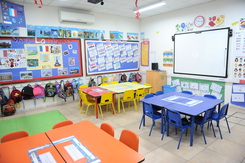 It’s common knowledge that the education system is touch and go. No matter what tax bracket you’re in, it’s no given that if you decide to attend the neighborhood school, your child will end up with an awesome experience (true for private school as well). That being said, it’s still very important to remember that parents play a critical role in advocating for the needs of their student and all students in a meaningful and respectful way. In doing this, we must remember that the edspace is not an easy profession and many of those employed by it, do so because they love it (or at one point did, which is another blog post for later). Teachers face many challenges outside of their control when attempting to educate our children and that should be supported by parents with a hands on approach at home. You shouldn’t expect your child to get everything they need to be lifelong learners solely from their school. As difficult as it actually is to run a classroom, we never consider the difficulty in keeping an entire school running and in order. Good leadership goes a long way and positive feedback loops actually serve to continue the school’s move in a positive direction. Much of the media discussion around education focuses on the classroom teachers- how teachers lack the support of their administration; how teachers are facing burnout at high rates; or how teachers are completely failing our students. We hear about the “administration” in more shadowy terms, magical wizards of destructions mandating the demise of our future citizens and thinkers: “school administration”, the school board, the superintendent, the Department of Education. We rarely focus on the importance of the middle men and women out there balancing the needs of teachers, students and communities- the principals.
 When something is broken it should be fixed. Vocalize that in a productive manner. It’s critical that parents do their research, advocate for their child’s needs and become invested and active partners in their child’s learning at home and at school. This is two fold- positive feedback and constructive criticism. Write to the principal to advocate for the schooling and experiences that transformed your child’s learning. Constructive criticism is great, but don’t forget to give your principal and teacher a high-five every now and then during the school year. I mean, who really wants to get frowny-face stickers on their paper all the time... I’m sure they’ll appreciate a bit of positive feedback once in a while. Read more on the blog about education! Dear Teachers Be a Chaperone! Project Based Learning: Garbage Doll Assemblage Why Writing Prompts Are Great For Kids Disclaimer: NONE OF THESE IMAGES ARE MINE.
1 Comment
This is very good advice. I think too many parents don't feel that they have a say in their child's education, but they do. As a parent, you have to voice your concerns and it's a great idea to get to know the principal. But on the flipside, like you said, you have to be prepared to follow through if you were going to speak up.
Reply
Your comment will be posted after it is approved.
Leave a Reply. |
I'm a former teacher and former college athlete, currently working to make life more equitable for all people. My mission is to get parents to partner with their child's teacher.
|


